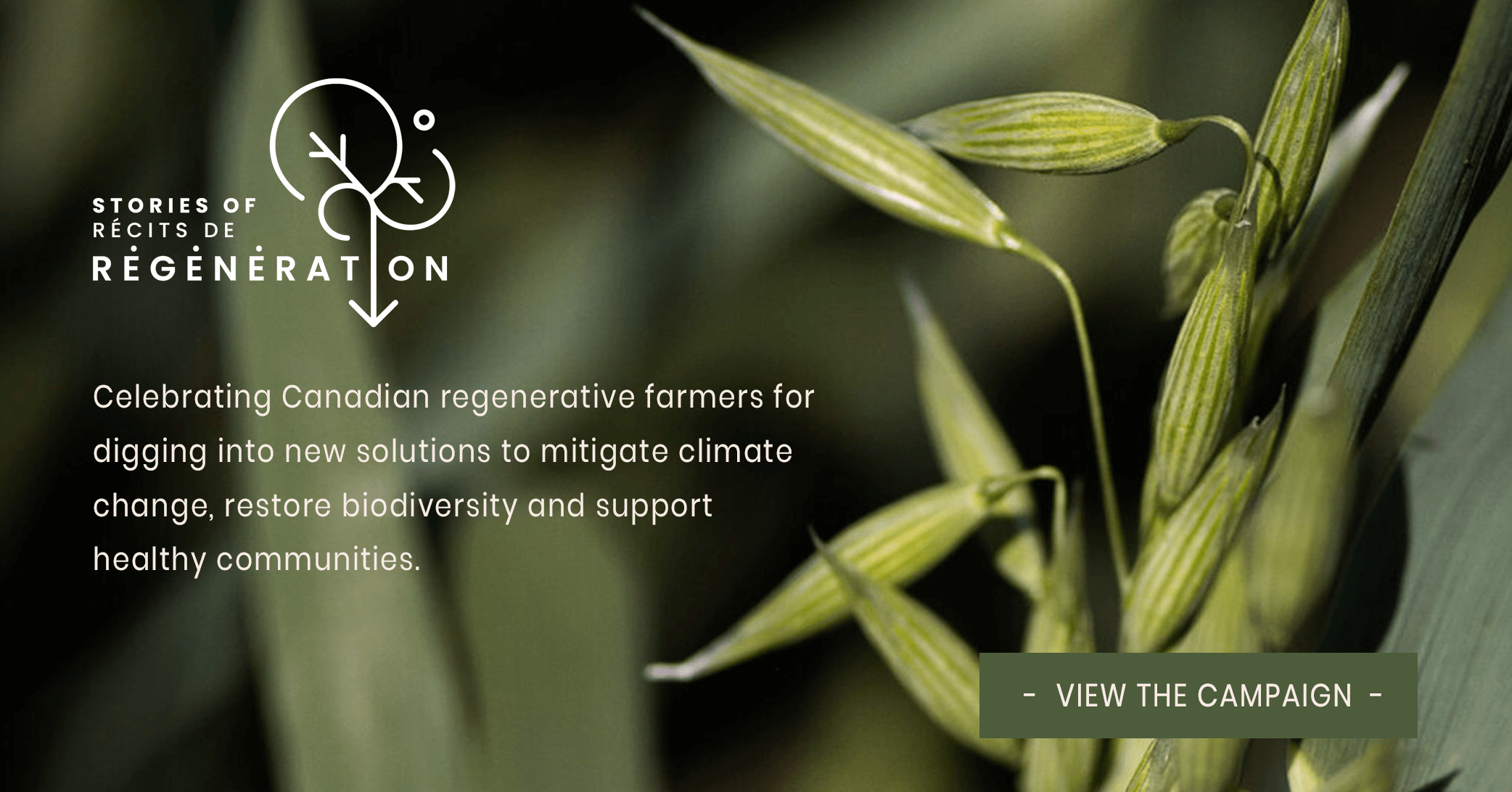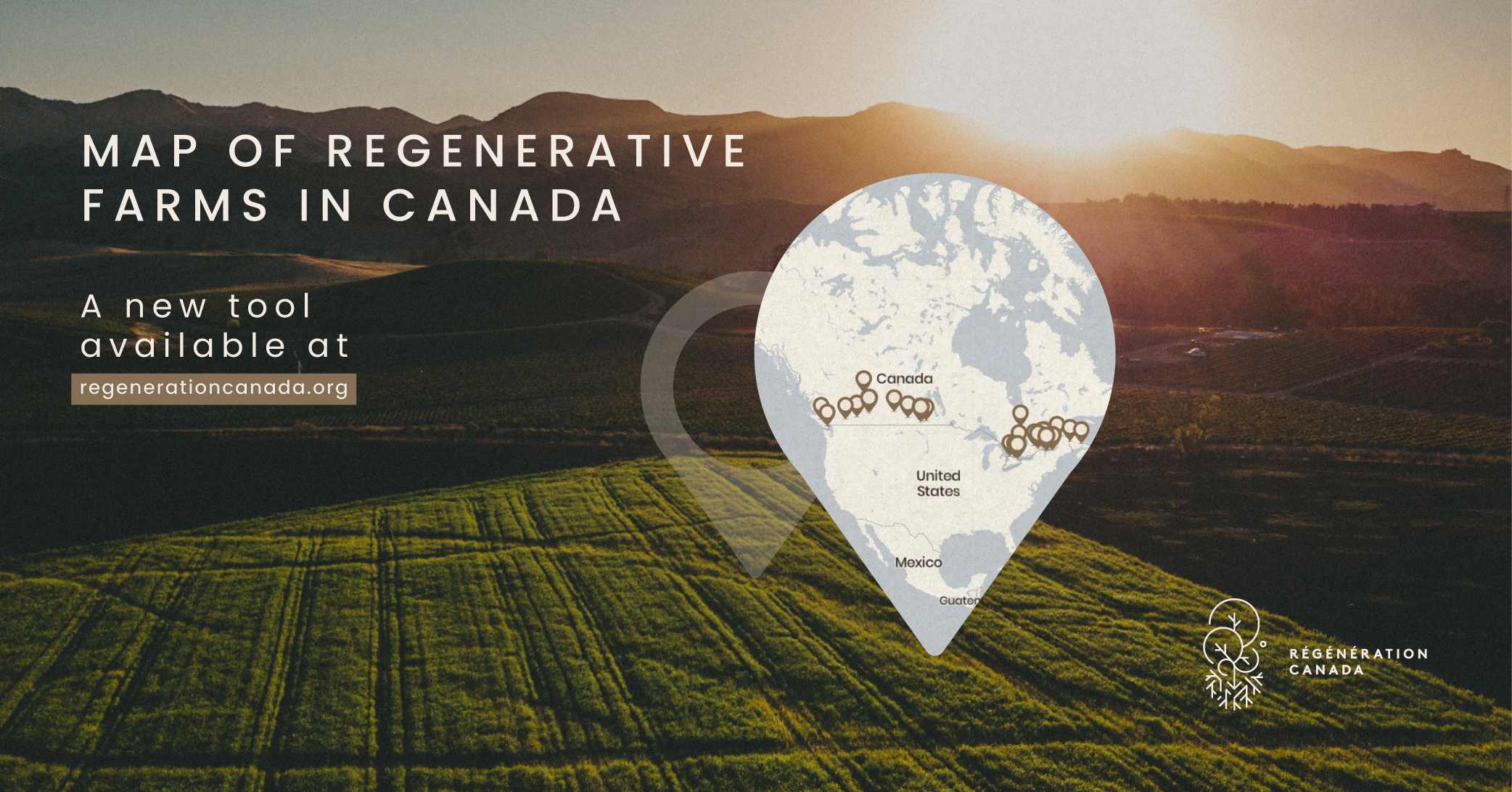Every year in February, people around the world celebrate Black History Month. In Canada, as in other countries born from colonisation, the past history and present reality of agriculture is intimately tied to the contributions – and the exploitation – of Black and other racialized people.
“When we fail to talk about rural Black Canadians, we contribute to the erasure of Black history, present, and future.”
– Georgina Alonso, PhD candidate in the School of International Development and Global Studies at the University of Ottawa
From the very foundation of New France in the early 1600s up until the abolition of slavery throughout the British Empire in the 1800s, thousands of enslaved Africans from the transatlantic slave trade were forced to be domestic servants and farm labourers for settlers in present-day Canada. Long after the legal end of slavery in the colonies, Black settlers were excluded from participating in social and political life through formal and informal segregation. At the turn of the 20th century, formerly enslaved African Americans who sought the promise of freedom and land in the North faced many institutional barriers to immigration. The few who successfully crossed the border were segregated to remote rural lands deemed undesirable to European migrants, who at times reclaimed those settlements once the landscape was successfully transformed for cultivation.
Even today, much of Canadian agricultural production depends on the labour of Black and other racialized migrant seasonal workers who are forced to work under exploitative conditions with little to no protection of their rights.
“We cannot talk about food, food security, or food justice without talking about the role racism and injustice plays in the food landscape. They are never separate, but rather intertwined especially because Canada’s food security is guaranteed by non-white—cheap or poorly paid—labour, even though these labourers are not recognized by the State and society.”
– Leticia Ama Deawuo, Executive Director of SeedChange
Moreover, Black citizens across Canada still face food- and environment-related injustices at a disproportionate rate. Indeed, Black Canadians are 3.5 times more likely to experience food insecurity compared to White Canadians, even after adjusting for factors like immigration status, education level, and homeownership. Alongside Indigenous peoples and other racialized groups, Black communities are also more likely to live near sites of industrial pollution and in locations that will be most impacted by climate change – two manifestations of environmental racism. In fact, an anti-racist framework is key to understanding and reversing the global trend toward environmental destruction:
“You can’t have climate change without sacrifice zones, and you can’t have sacrifice zones without disposable people, and you can’t have disposable people without racism.”
– Hop Hopkins, Director of Organizational Transformation for the Sierra Club

Organizations to support
There are multiple organizations in Canada that defend the interests of Black farmers, environmental leaders and migrant workers. You can support them by donating money, time and resources, and by amplifying their message in your circles and on social media.
|
Black farmers & environmental leaders • National Black Farmer Fund |
Migrant workers • Justicia for Migrant Workers
|
Keep learning
Learning about Black history and the present lives of Black communities should go beyond a yearly effort. With this in mind, we have identified additional written and media sources to those linked in the text above, to dig deeper into the subject matter. Why not start a reading circle in your organization or social network to make this a year-round learning project?
Videos and documentaries
• Cultivating Racial Equity in Regenerative Agriculture (LSS 2021) | Regeneration Canada
• Working for Racial Justice in Farming | EFAO
• New Brunswick’s only Black Farmers? | BlackLantic
• We Are the Roots: Black Settlers and their Experiences of Discrimination on the Canadian Prairies | Shiloh Centre for Multicultural Roots
• Remember Africville | NFB
• There’s Something in the Water
Podcasts
• FoodShare’s Dignity and Joy series
• SeedHeads: Anan Lololi and Paterne Mirindi et Jean-Philippe Vézina
• Blueprints of Disruption: Fighting More Than Food Insecurity with Paul Taylor
• Who Will Feed Us: Migrant farm labour and building the solidarity we need
Books
• There’s Something in the Water: Environmental Racism in Indigenous and Black Communities | Ingrid R. G. Waldron
• In the Shadow of Slavery: Africa’s Botanical Legacy in the Atlantic World | Judith Carney
• Farming While Black | Leah Penniman of Soul Fire Farm
Articles and guides
• Black Family Farming In One Of Canada’s Whitest Provinces: New Brunswick | byblacks
• The Challenge of Food Sovereignty for Black Farmers in the Greater Toronto Area | Future Farmers
• ‘The only Black one left’: Alberta village remembers its African-American roots | Saskatoon Star Phoenix
• Three Black farmers and the fight for diminishing land in southern Ontario | The Narwhal
• Being a Black farmer in a field of white opened my eyes to Canada’s agriculture diversity problem | The Globe and Mail
• Anti-racism, Equity, & Belonging | EFAO
• The Slave Trade & The Climate Crisis | Greenpeace Canada
• Dismantling Racism in the food system | Food First
• Why We Can’t Separate Justice and Sustainability in the Food System | The Equation
• Celebrating Black History Month: 8 Contributions of Black Farmers to Regenerative Agriculture | Young Agrarians
• Anti-Racism in Farmers’ Markets: A Toolkit
• Young Farmers Racial Equity Toolkit | The National Young Farmers Coalition




